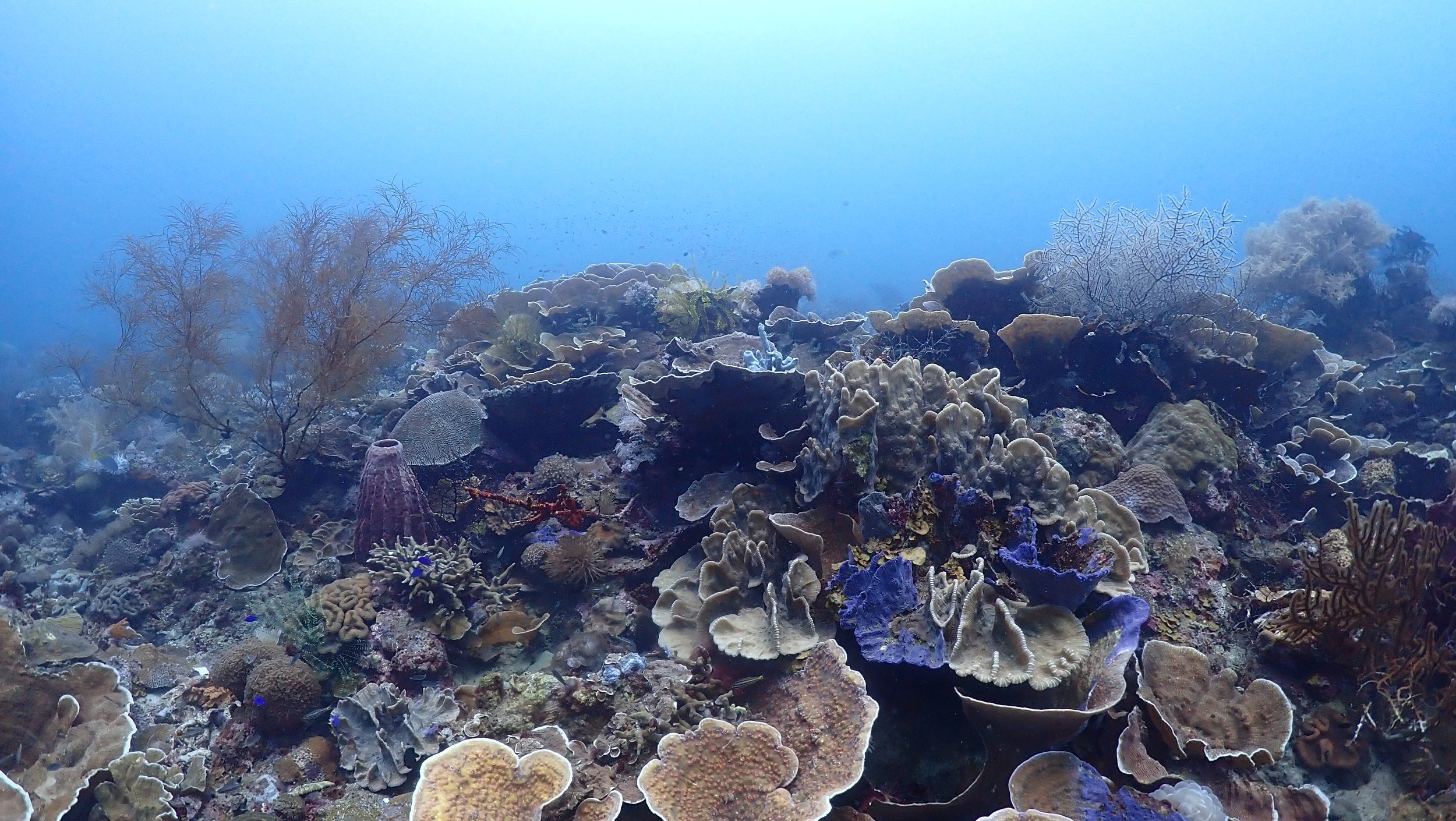Resilience based management is about adapting management actions to sustain ecosystems and social well-being.
Resilience is a topic that we have covered before, but it’s worth revisiting because it is increasingly being used in coral reef conservation circles in the context of climate change, how reefs are affected by it, and what we can do about it – particularly local managers.
There’s much more information on this topic as it relates to coral reefs at the Reef Resilience Network.
Resilience Defined
There are many ways to define resilience. More important for our purposes is to acknowledge that resilience can be applied to both ecosystems and societies.
Ecological resilience refers to the ability of an ecosystem, such as a coral reef, to maintain key functions and processes in the face of external stresses or pressures, by resisting or adapting to change.
Say what?
Let me use an analogy – a person. Imagine someone who has a good diet, plenty of rest and exercise, no bad habits like smoking and drinking – their “ecosystem” (or their immune system) is likely to be healthy and strong, and able to respond robustly to an external threat – like covid.
Then there’s the person who isn’t so healthy (the author is one such!) and who is, therefore, likely to succumb to an external threat (that’s why I got covid!). Furthermore, the “healthier” the individual, the more likely they will recover quickly from an external threat if they do succumb – so no long covid, for example!
In ecological terms, we divide stressors into “local” (such as sewage pollution or physical damage by tourists) and “global” (such as warming oceans and ocean acidification) stressors. The distinction is important.
As a small local organisation, we can’t do much about the global trends (that takes international action). But we can help to identify the local impacts, and find ways to minimise or eliminate them, thereby “building the resilience” of marine ecosystems so they are healthier and more likely to survive external threats.
This in turn contributes to ensuring that reefs are as healthy (resilient) as possible so that when the big external stressors arrive (such as warming oceans, which causes mass coral bleaching) the reef is better able to shrug it off or recover from it.
Touching briefly on communities, social resilience is defined as the ability of a human community to cope with and adapt to threats such as social, political, environmental, or economic change. Such communities can respond to change and uncertainty and are able to take steps to protect their future.
So, for example, a community that relies on reef-related tourism could develop terrestrial tourism products to provide some economic redundancy in the event that reef tourism declines. Reef managers need to recognise this vulnerability and support adaptation.
Resilience Based Management (RBM)
Which brings us to RBM. As a consequence of mass coral bleaching events in recent years, and expectations that climate impacts will increase, coral reef managers are increasingly focusing on management approaches that support the resilience of coral reefs. RBM is about adapting management actions to sustain ecosystems and social well-being.
Ecological examples of RBM include:
Reducing local threats, such as sewage pollution and physical impacts
Supporting reef recovery processes like recruitment by managing fishing and protecting populations of herbivorous fish
Social examples include:
Developing alternative livelihoods (e.g. establishing recycling businesses, terrestrial tourism)
Supporting adaptive capacity so that local communities are able to adopt new skills easily.
Why now?
A number of factors are pushing RBM. Principle among them is the growing concern about the impact of ocean warming (and increased ocean acidification) on coral reefs. This has been recognised in the recently signed Kunming-Montreal Global Biodiversity Framework, specifically Target 8 which requires signatories to:
Minimize the impact of climate change and ocean acidification on biodiversity and increase its resilience through mitigation, adaptation, and disaster risk reduction actions, including through nature-based solution and/or ecosystem-based approaches, while minimizing negative and fostering positive impacts of climate action on biodiversity.
As part of our own efforts on this topic, we have recently concluded a two-year study, working with the Department of Fisheries, to develop resilience-based management plans for the Marine Parks off the East Coast of Peninsular Malaysia.
As part of the programme, we trained local stakeholders in resilience principles and developed training modules for future use. We also prepared a longer-term strategy designed to protect connectivity between marine resources off the East Coast.
Data from NOAA are already indicating that this year could see a repeat of the El Nino/La Nina weather phenomenon that causes elevated sea temperatures, possibly leading to mass coral bleaching, something we haven’t seen for several years.
The time for action is now, before too much damage is done.
2022 Annual Survey Report
These ideas are captured in our recently published 2022 annual coral reef survey report. Our recommendations include:
Building resilience of coral reefs by reducing local impacts that are affecting reef health
Prioritise relevant actions from the post-2020 GBF including strengthening the role of local populations and holistic management
Taking a broader view of marine resource management, to make it integrated and holistic, by adopting a “seascape approach” to management.
As I noted previously, one of the great things about resilience is that it is very democratic – everyone has a role to play. Resort operators, tour guides, local islanders – even tourists; so it’s not just left up to the government to do everything.
More on this in the next post!



